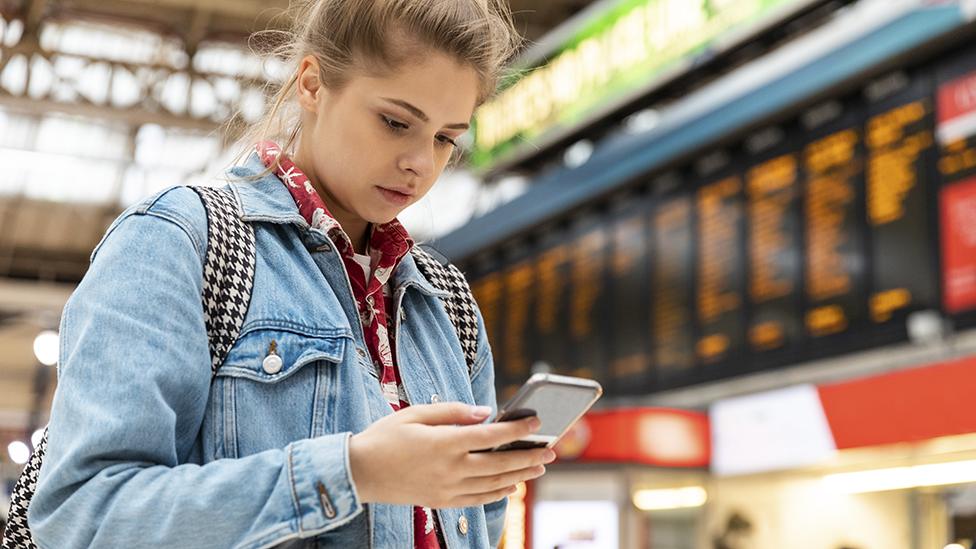Rail ticket office mass closure consultation extended
- Published
- comments
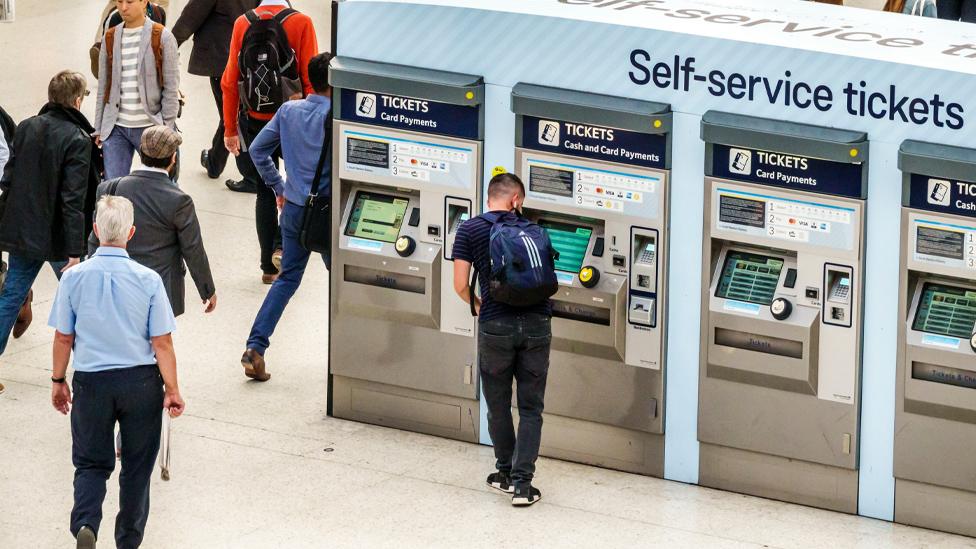
Only 12% of tickets were sold at ticket offices last year, according to the Rail Delivery Group
The consultation into the plan to close hundreds of ticket offices in England has been extended until 1 September.
Organisers of the consultation said some train companies did not provide accessible formats, preventing people from being able to respond to plans.
More than 170,000 responses have been received, according to watchdogs Transport Focus and London TravelWatch.
The plan sparked concern from rail unions over job cuts and disability groups over accessibility issues.
The 21-day period for passengers to share their views was due to end on Wednesday, but the Rail Delivery Group say it has listened to feedback and has extended the consultation period by almost six weeks "to give as many people as possible a chance to take part".
Chairman of Network Rail, Lord Peter Hendy, told BBC Breakfast an extension is "a really good thing for our customers, because the railway ought to listen to its passengers".
Posters went up in stations earlier this month, inviting the public to send in their responses.
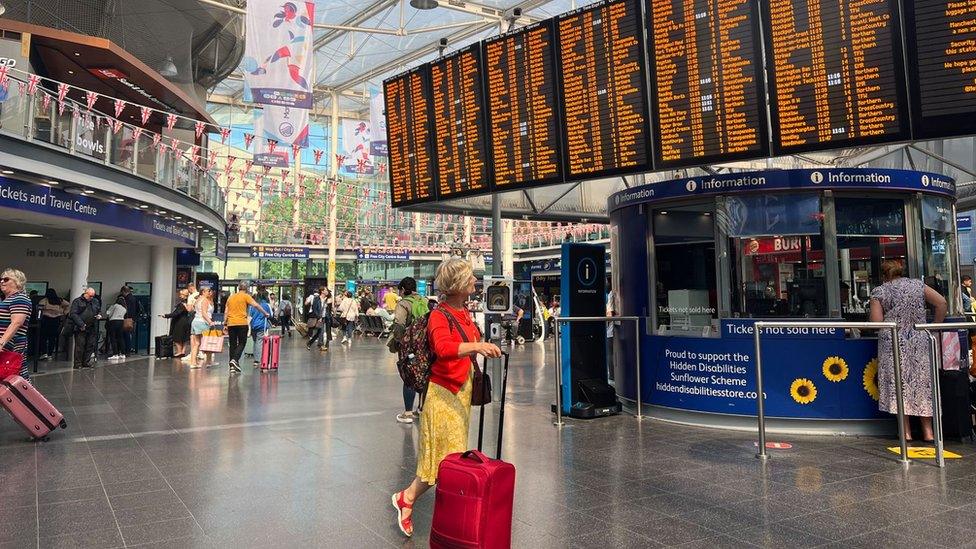
Currently around three out of every five stations has a ticket office, although some are only staffed part-time.
The ticket office closure proposals have been put forward by train operating companies. They are under pressure from the government to cut costs after being supported heavily during the Covid pandemic, and argue only 12% of tickets are now bought at station kiosks.
Currently 299 stations in England run by train companies with Department for Transport (DfT) contracts have a full-time staffed ticket office - 708 are staffed part-time. Under the proposals, most would close.
The industry argues staff would instead be present on platforms and concourses to sell tickets, offer travel advice and help people with accessibility.
However, the UK's largest rail union the RMT, as well as the TSSA union both warned the plans could ultimately lead to job cuts.
Some rail experts have also said the complicated ticketing system should be reformed before ticket office changes are introduced.
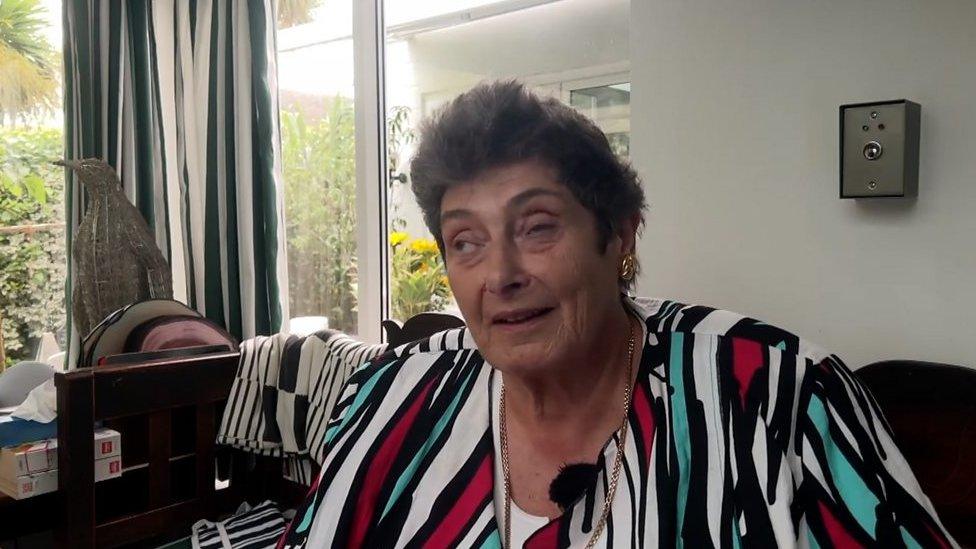
Disability rights campaigner Penny Melville-Brown has criticised the consultation process
Penny Melville-Brown, a blind Royal Navy veteran who regularly uses the railway said the proposals discriminated against people living with sight loss.
She told the BBC that she relied heavily on ticket office staff at a train station as she has "no idea where to go, as I don't see anything".
She added: "I don't have huge problems with making things modern and work better for everyone, but when you design new systems, you need to start designing with the people who are going to have most problems, the most vulnerable."
The disability rights campaigner has written an open letter explaining how difficult commuting would be, and criticising the consultation process.
Tom Marsland, policy manager at disability equality charity Scope, said: "These botched plans will make rail travel impossible, or much harder, for many disabled people.
"Extending the consultation doesn't solve that. The government and rail industry need to go back to the drawing board."
There have been threats of legal challenges from some disability campaigners, and from five Labour metro mayors.
But the train operating companies' body, the Rail Delivery Group, has consistently defended the proposals and the consultation.
Last week its chief executive Jacqueline Starr told the BBC the industry was listening to accessibility groups' concerns and had taken part in a 'round table' with the rail minister.
Asked if she could promise that every ticket would still be available from machines or online, including the cheapest, Ms Starr responded: "I'm not going to make promises that I can't keep".
She added that the industry would work hard to make sure vending machines did offer every ticket where possible.
Related topics
- Published21 July 2023
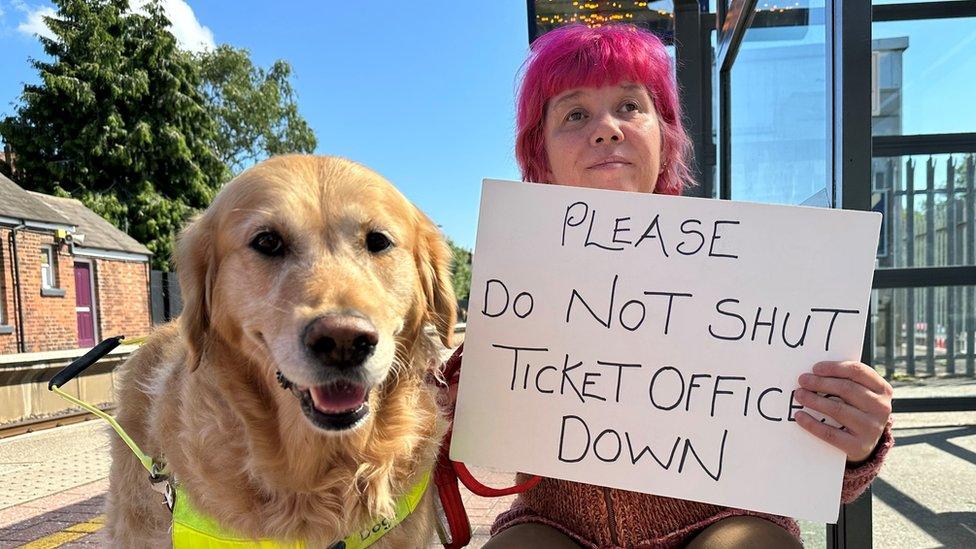
- Published12 July 2023
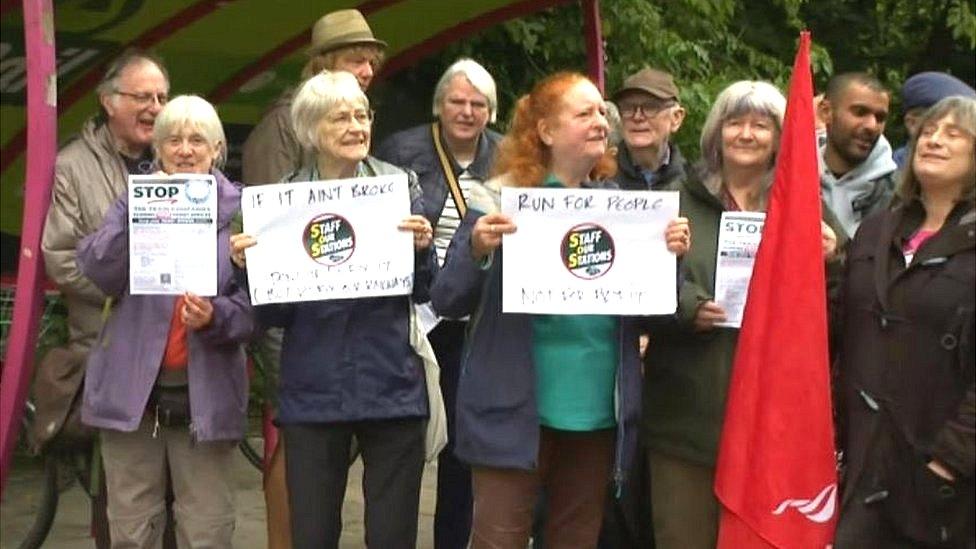
- Published6 July 2023
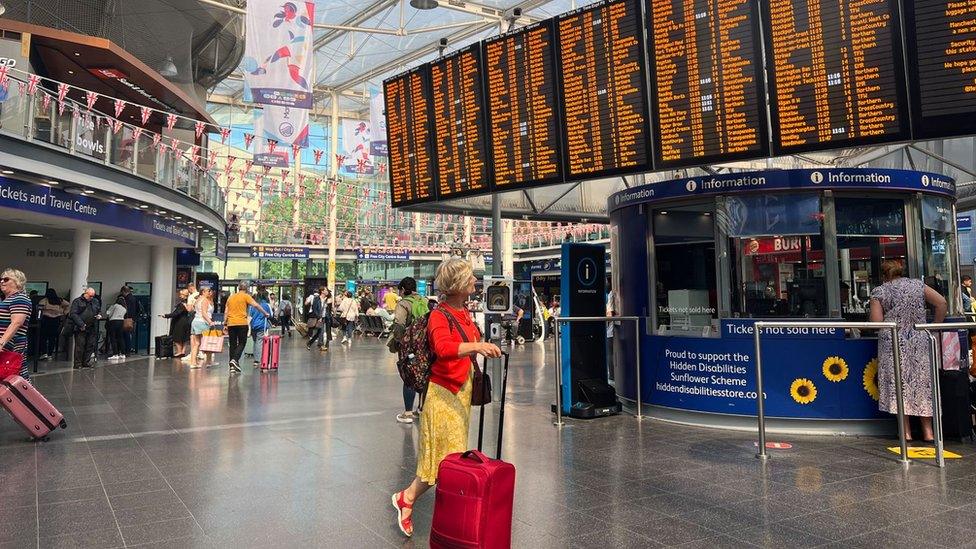
- Published5 July 2023
